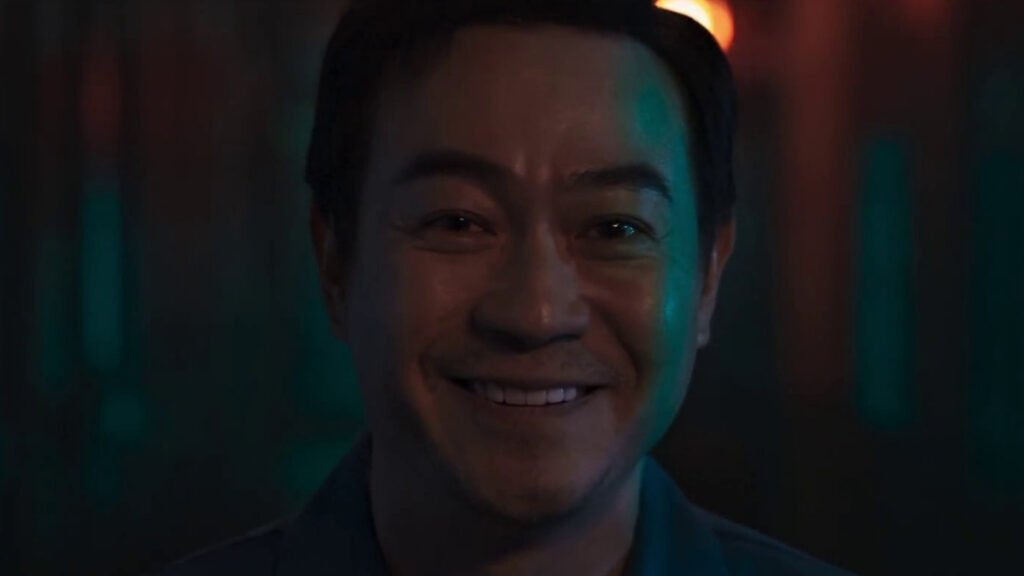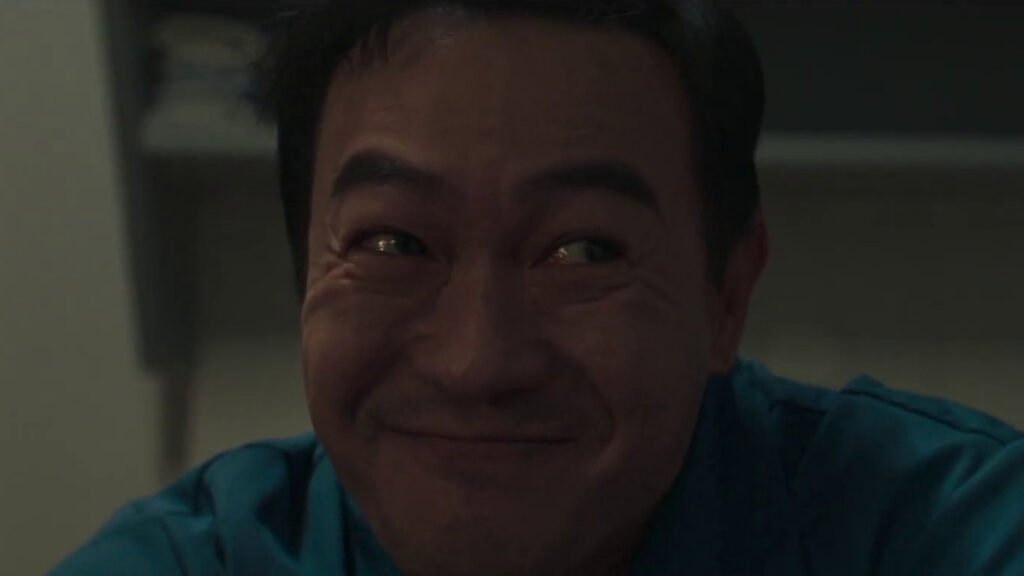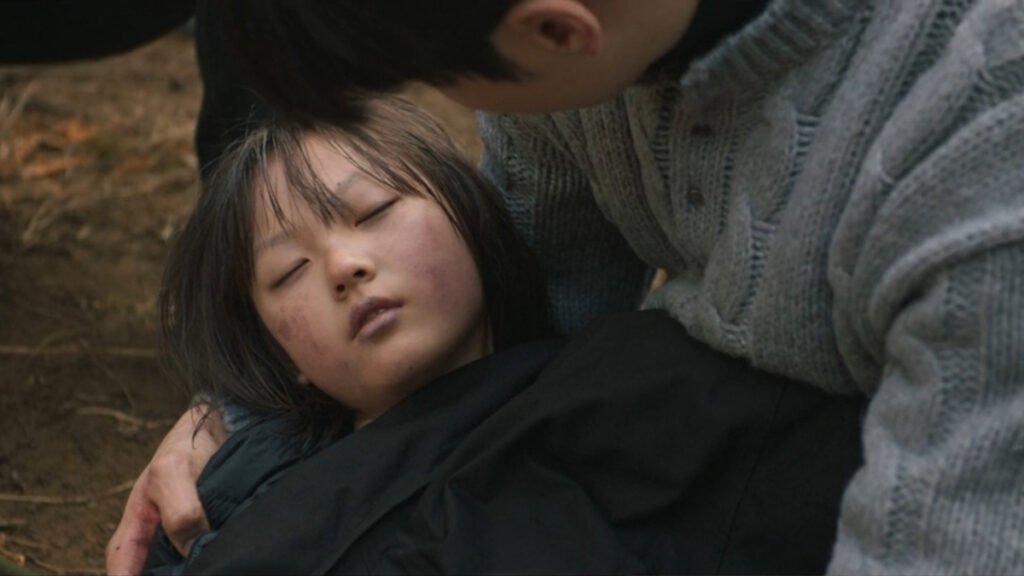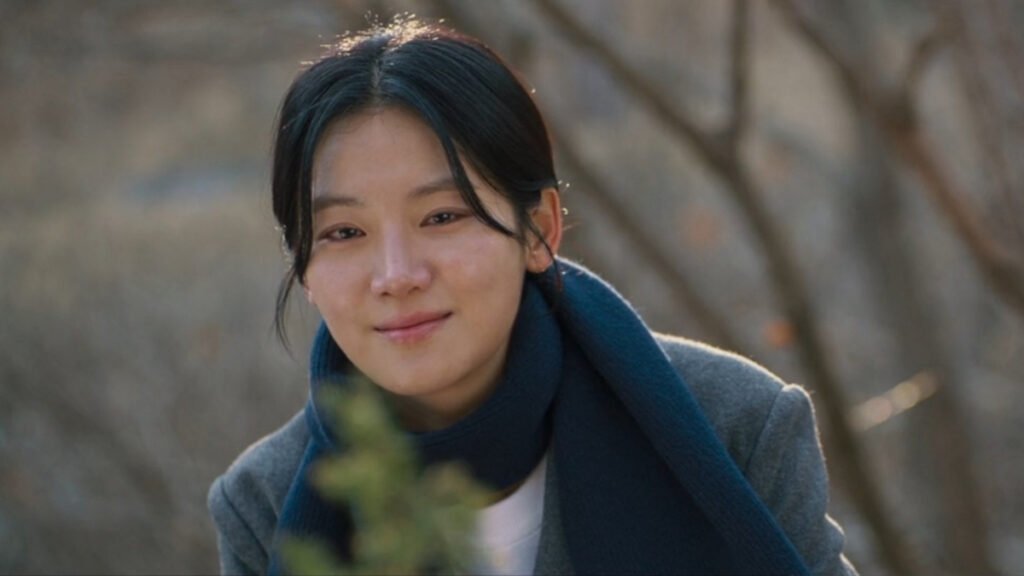Hunter With a Scalpel Ending Explained: Written and directed by Lee Jung-hoon and co-written by Jo Han-young, Park Hyun-shin, Hong Yeon-yi, and Jin Se-hyuk, this drama 메스를 든 사냥꾼 is adapted from Choi Yi-do’s thriller novel of the same title. This psychological thriller features Park Ju-hyun as Seo Se-hyun, a cold but genius forensic pathologist; Park Yong-woo as Yoon Jo-gyun, her spine-chillingly manipulative serial killer father; and Kang Hoon as Jung Jung-hyun, a kind-hearted detective who is bent on keeping Se-hyun away from herself and the evil that surrounds her. With powerful acting, jaw-dropping plot twists, and a heart-wrenching emotional centre, the drama had viewers emotionally devastated by its conclusion.
Hunter With a Scalpel Recap
The central premise of Hunter With a Scalpel kdrama is terrifying: What if the serial killer from your past returned, not just to haunt you but to drag you back into his world? Seo Se-hyun, the greatest in her profession, is shaken to the core when a routine autopsy brings back memories of the very patterns her father had employed before his alleged death. The killings persist, the fibres of past and present twining together, as Se-hyun has to race against time to apprehend a killer with whom she is all too familiar. The further she descends, the more she threatens to lose her career, her liberty, and her identity.
Through 16 episodes, Se-hyun is tested to the limit. From concealing clues and killing in self-defence, to staging crime scenes and reporting fiction, she takes morally compromised decisions in her last bid to thwart Jo-gyun. Her professional and personal dynamics with Jung-hyun also change, from tension to silent support, tainted by mistrust, betrayal, and yearning. Meanwhile, Se-eun, a child adopted by Jo-gyun as a distorted substitute for Se-hyun’s deceased sister, emerges as the emotional centre of the third act, compelling Se-hyun to face her past life completely.

By the end, all the threads converge into a terrifying confrontation in the forest. Se-hyun whips out what seems to be poison to deceive Jo-gyun, takes advantage of the moment to immobilise him with a muscle relaxant, and is about to slaughter him with her scalpel—her final weapon of justice and pain. She desists only when Jung-hyun assures her that Se-eun is still alive. At that instant, Se-hyun finally lays her scalpel down, a sign that she will not end up like her father. Jo-gyun is apprehended, Se-eun is rescued, and Se-hyun starts the arduous, agonising process of healing.
Hunter With a Scalpel Ending Explained
Did Se-hyun actually turn out like her father?
Maybe the biggest question of the entire series Hunter With a Scalpel, is whether Se-hyun was destined to become like her father. At a few moments—particularly after killing Kwon Hyung-jo and tampering with evidence—it seems like she’s jumped to the bad side. Her calculated actions, surgical precision, and emotional detachment recall Jo-gyun’s monstrous qualities. Yet, what distances Se-hyun from her father is conscience.
Even when she lies or murders, she does so out of fear, guilt, and desperation—not for pleasure or control. Her decision to spare Jo-gyun in the end, even having every reason and means to murder him, indicates that she is not her father’s shadow but her own individual. Her ethical line, though tenuous, is not broken.

What actually happened to Se-hyun’s sister, Ko Eun-seo?
Ko Eun-seo’s destiny is played out as one of the Hunter With a Scalpel season’s emotional focal points. The series gradually discloses that Eun-seo attempted to break away from their father’s control, and with courage, pushed Jo-gyun off a cliff. Se-hyun thought both had died, only to discover subsequently that her father did survive. Eun-seo’s death was not only a tragedy, but it was a turning point—her loss haunted Se-hyun and caused her to push everything related to that past aside. It also accounts for why Se-hyun becomes so fiercely guarded of Se-eun: she recognises her sister in the abused girl and has a second chance to salvage someone she lost previously.
Why didn’t Se-hyun go directly to the police?
This is asked throughout the show, not only by characters but also by the viewers. Se-hyun isn’t afraid of her father—she’s afraid that the world will know who her father is. Her whole career, reputation, and identity are based on being a logical professional. Revealing would not only bring public shame but also the potential for being accused as an accomplice. She also doesn’t believe the system will apprehend Jo-gyun before more lives are lost. So instead, she tries to fix it on her own terms, even if that means sacrificing her ethics. In retrospect, silence let things become worse, but it also made her ride more painful and personal.

Also Read: Ballard Review: Promising Yet Flawed Expansion of Michael Connelly’s Crime World
Was Jo-gyun finally arrested?
Yes, having terrorised his family and manipulated all the people around him for so long, Yoon Jo-gyun is finally apprehended. In Hunter With a Scalpel Episode 16, he invites Se-hyun into the forest where he used to kill people and bury the bodies, unaware that she has set the meeting in order to ensnare him. She feigns taking poison and faints and he ends up carrying her on his back. In a symbolic gesture of taking control back, she gives him an injection of a paralyzing agent and starts cutting him up with a scalpel—imitating his own depraved tactics.
But the police intervene in time, foiling her from take it to the end. Jo-gyun is taken into custody and jailed, where he spends his days hallucinating, envisioning a joyful existence with the daughter who will never be able to forgive him. His demise is alone, humiliating, and justifiable.

Did Jung-hyun manage to save Se-eun?
Yes, Se-eun, the child Jo-gyun had brainwashed to become his new “daughter,” is discovered alive. While Jo-gyun brutalises her and traps her in a blue drum to succumb to hypothermia, Se-hyun had provided her with a special watch containing an SOS tracker. When Se-eun is inside the drum, she recalls Se-hyun’s instructions and depresses the secret button. Jung-hyun, who has always trusted Se-hyun, gets the signal and makes his way to her position. Se-eun is found alive but barely breathing, demonstrating that no matter how bleak the situation, Se-hyun never lost hope of rescuing someone else from the hell that she was once trapped in.

What was Jo-gyun’s true motivation?
The motive behind Jo-gyun was a warped mix of control, narcissism, and legacy obsession. His need to dominate others, especially his daughters, stems from a belief that only he can “teach” them survival. He grooms Se-hyun from a young age to be his protégé, and when she rejects him, he replaces her with Se-eun. Every murder, every manipulation, was his way of exerting control and forcing those around him into moral compromise. He treated love as possession and parenting as monster-making like himself. Ultimately, his failure to dominate Se-hyun is what finishes him off. His worst nightmare—being alone and forgotten—is precisely how his story unravels.
Did Jung-hyun and Se-hyun achieve peace?
Yes, in a peaceful, quiet manner. Jung-hyun quits working with the criminal division and opts for a quieter life as a patrol officer. Se-hyun, once alone in the cold, now looks after Se-eun and makes a step towards healing from her emotions. At the end of the drama, the three of them spend a moment of quiet together—Se-hyun purchasing Se-eun a school uniform, Jung-hyun walking alongside. There are no big love confessions or redemption arcs, but what is between them is obvious.

They have endured hell and emerged on the other side, battered, but not shattered. For characters who fought most of the series against their backstories, this peaceful, chosen family is the best they can get. We also see that Se-hyun is no longer escaping her past. She goes back to the site where she hid her sister’s school uniform and is at long last able to say the words she could never say: “Sorry” and “Thank you.” Her path ends not with revenge, but with healing.

The ending of Hunter With a Scalpel doesn’t conclude in dramatic courtroom justice or media spectacle. Rather, it gives something more substantial: emotional closure. It is about survivors opting to live differently, even after years of manipulation and suffering. And in that last shot of Se-hyun, standing where her sister perished, finally speaking out, is the most powerful kind of conclusion: one that reads like a beginning.
